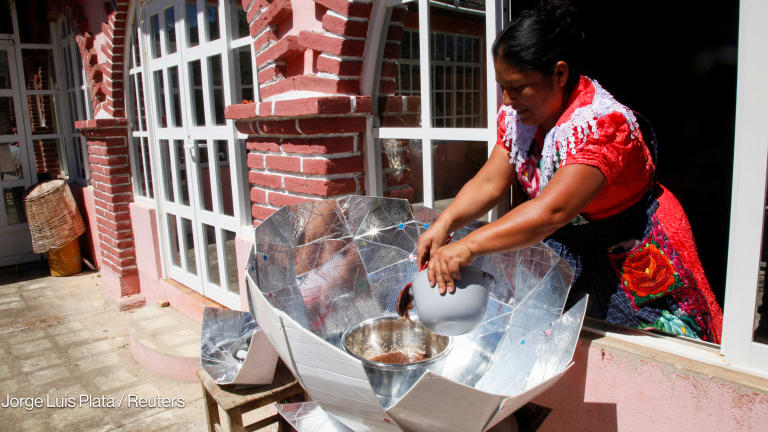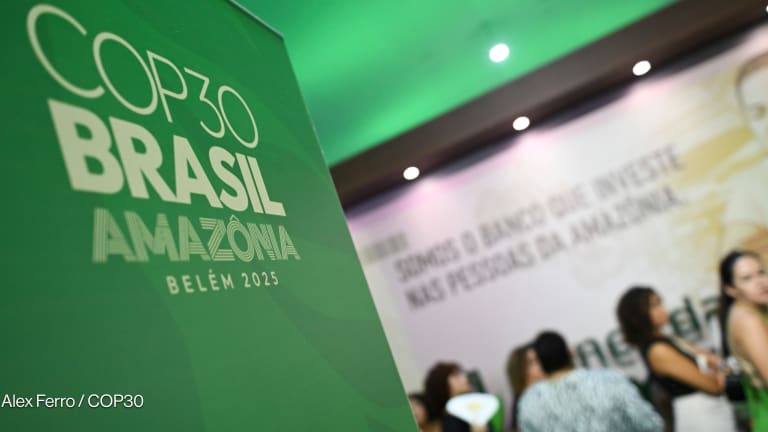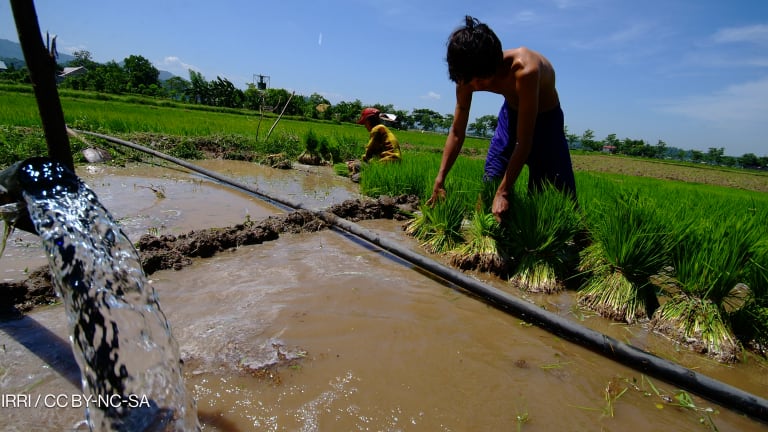
The effort to reduce gas flaring associated with oil production is stalling, which could lead to a failure to hit carbon emission goals, the World Bank warns in a new report.
Not only does the burned off gas harm the environment, it is also wasteful: It could be turned into energy to benefit people, especially the poor living without electricity in oil-exporting nations.
A big problem leading to the stagnation is that many major oil producers have not halted the flaring while production has increased.
The Pro read:
Should oil companies receive climate finance?
A World Bank-led initiative to reduce the harmful and polluting practice of gas flaring could also be used to divert public resources toward the fossil fuel industry's long term interests, a civil society group warns.
“There is a huge amount of natural resources being wasted. That’s why it’s a development issue for us,” Zubin Bamji, program manager of the Global Gas Flaring Reduction Partnership at the World Bank, told Devex. The GGFR works with governments and oil companies to assess technologies, develop policies and regulations, and build capacity to end routine flaring by 2030.
“If you are a developing country, and you have this natural resource, you could use it for economic benefit,” Bamji said. “There are countries with a lot of people without access to energy or electricity, but they could be living in close proximity to these gas flares.”
Flaring occurs when oil extractors burn the excess methane gas released by their operations. The United States remains among the top 10 oil-producing and flaring countries, a group which accounts for 75% of all flaring. The others include Russia, Iran, Iraq, Nigeria, and Venezuela. This top 10 group also produces about 50% of global oil.
However, the U.S. stands out as the only country in that group to have reduced flare volumes while increasing production over the last decade. The U.S. flare intensity is down 46%, the report said.
“We’d like to see the industry collectively say this practice [of gas flaring] should no longer be persisting.”
— Zubin Bamji, program manager, World Bank’s Global Gas Flaring Reduction PartnershipWhile the U.S. and other countries have carried out what the bank considers “impressive reductions,” others have increased their flaring. The end result is that “flare volumes and flaring intensity have plateaued over the last decade.”
Mexico and China, along with war-ravaged Libya, have “shown significant flaring increases
in recent years,” the report said.
In 2021, 144 billion cubic meters of gas was needlessly flared around the world, the World Bank said, releasing some 400 million metric tons of carbon dioxide equivalent emissions. For scale, the International Energy Agency reported that global energy-related carbon dioxide emissions hit 36.3 billion tonnes last year — the highest-ever level.
Whenever companies pull oil out of the ground, gas gets released, and only a small fraction of it can be put back into the reservoir.
This released methane is harmful to the atmosphere and so it gets burned — which is still damaging, but somewhat less so. Not all the methane combusts, which leaves some in the air.
The bank relies on data from the Intergovernmental Panel on Climate Change that shows methane has a global warming potential 25 times greater than CO2 on a 100-year basis.
The technological solutions are varied but include building pipelines or setting up modular methods, such as trucking, to get the gas to market.
Bamji notes that the World Bank itself will generally not create programs for gas capture projects because the anti-poverty lender has a policy not to support upstream oil and gas.
“We don’t do lending for any upstream gas and oil development,” he said. The International Finance Corporation, the bank’s private sector wing, is involved in gas projects that the institution considers “midstream” — such as ones in Iraq — which reduce gas flaring and capture the energy to bring to market.
There is a heated debate around the issue of gas flaring, including whether fossil fuel companies should get climate finance to capture the natural gas and put it to use. Climate activists caution natural gas still has negative climate effects.
The bank can offer technical support to governments on how best to move forward. But most of the onus will be on the private-sector firms that profit from the drilling in countries where the oil firms are not state-owned enterprises.
“We’d like to see the industry collectively say this practice should no longer be persisting,” Bamji said.
The World Bank report said that Kazakhstan has been among the most successful at reducing flaring, in part because it has strict regulations, but also through incentives built around a strong domestic gas market that encourages recovery efforts.
Bamji notes that “it’s almost always the lack of incentives and appropriate regulations” that get in the way of ending the flaring. For example, a firm may prefer to pay a fine rather than capture the gas.
The bottom line is that governments and the private sector companies involved in the drilling will have to swiftly step up efforts if they want to hit the target of “zero routine flaring by 2030,” a key part of the net-zero emissions objective.
Update, May 5, 2022: This story has been updated to clarify that IFC considers its Iraq projects “midstream.”
Search for articles
Most Read
- 1
- 2
- 3
- 4
- 5








